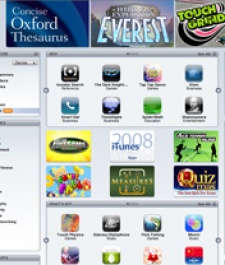Apple has tweaked its App Store popularity algorithm in the last 36 hours, closing the loophole by which publishers could rack up downloads of a free game, then switch it to paid and have those free downloads count as sales to boost its popularity ranking.
At least, that's what indie developer IMAK Creations says, in a blog post analysing the performance of its apps in the last few days.
"The change affects applications that accumulated free sales and then switched to paid," claims the developer.
"These applications previously enjoyed an increased popularity score due to the fact that their sales, while free, were not discounted since they were now considered a paid app. With the new change, now only an applications paid sales will significantly contribute to the apps popularity meter."
IMAK even comes up with a rough formula for how Apple now calculates popularity:
Popularity = (number of free downloads)*10% + (number of paid downloads)
Assuming this is true, it's another sign of Apple making iterative tweaks to the App Store to help premium apps bubble to the surface, responding to developer concerns about their apps being buried below hordes of freebies.
IMAK thinks Apple will soon go further, though. "The next, and likely final, change to the App Store ranking system will be to incorporate pricing into the popularity algorithm," writes the developer.
"With this change, the average application price will triple and the days of the $0.99 app will be numbered. $1.99 will become the new low price for developers wanting to find the sweet spot... that optimizes popularity and sales (and revenue)."
Have you noticed the changes? Let us know how they're affecting your games if so, by posting a comment.
Did the App Store popularity algorithm just change again?
Developer says paid sales being given more weight






















